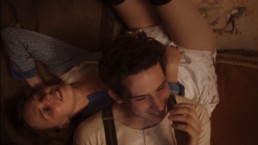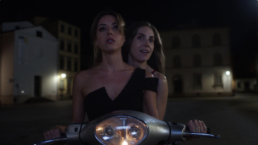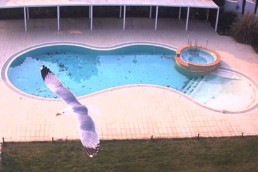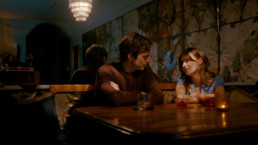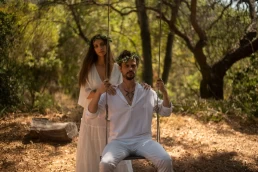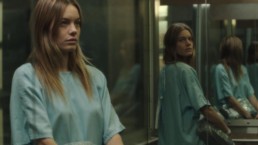'Mothering Sunday' is a Sensual, Seductive Period Piece
This review originally ran on September 12, 2021, during TIFF
The words "I tried" aren't necessarily the ones you want to hear as a filmmaker introduces their film for the first time. But those were director Eva Husson's parting words as she recapped her experience making Mothering Sunday. Husson, whose previous film Bang Gang blew me away with its raw sexuality and uncompromising vision, teams up with writer Alice Birch (Normal People, Succession) to bring the story of a torrid love affair, adapted from the novel by Graham Swift, to the big screen. Try as they might, though, this one just didn't land with a bang (despite there being a lot of "banging").
Related: ‘Bang Gang’ Review: A Sun-Soaked Navigation Through Teenage Sexuality
Mothering Sunday takes place in England just after WWI, although it should be noted early on that this does not look or feel like a traditional period piece. Shot in a contemporary way with vibrant colors and mesmerizing use of lighting, Husson employs warm cinematic filters to give an old story new life.
The protagonist is Jane Fairchild (Odessa Young), an orphaned woman who works as a housemaid for a wealthy English couple, played by the incomparable Olivia Colman and Colin Firth. They treat Jane as their own, outwardly showing her affection (as much as one with a stiff upper lip can express) but it's the secret love she shares with the young aristocrat Paul Sheringham (Josh O'Connor) that truly makes her feel alive.
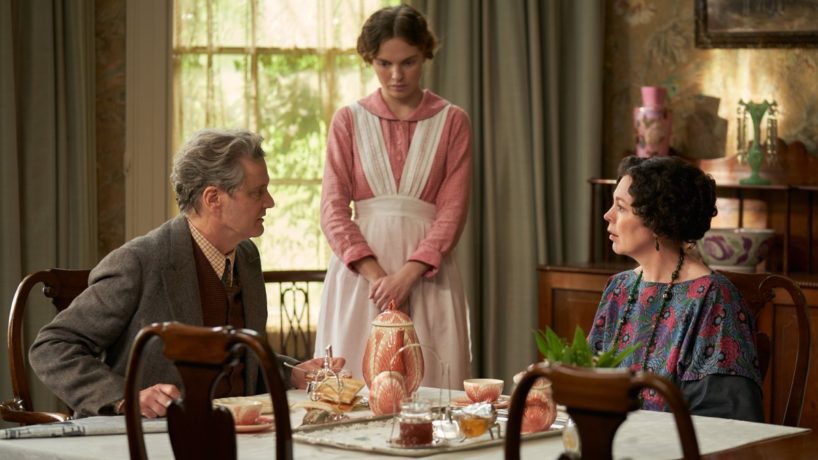
Their relationship is approaching its expiration date as Paul is set to marry another woman soon. Basking in the last moments they have left together, which includes poetic musings and rolling around naked, Paul and Jane make the most of their limited time together until a jarring accident prematurely ends things for good.
At this point, playing British aristocrats comes second nature to this central cast (O'Connor being The Crown's Prince Charles, Colman the series' Queen Elizabeth II as well as Queen Anne in The Favourite, and Firth playing King George VI in The King's Speech). This is to say that these fine actors do not disappoint here. Colman and Firth take on minor roles, initially leading me to question why exactly they had agreed to co-star in a film without much output, but my question was answered after each one had their show-stopping scene, complete with a dramatic monologue.
The biggest surprise was the moodiness of the film as a whole, which the score and cinematography by Jamie Ramsay contributed to greatly. Composer Morgan Kibby (of the French electro-rock band M83) re-teams with Husson to create a score that is quite unexpected for the time period, using orchestral strings layered with synth undertones, which is easily my favorite part of the film.
Unnecessary secondary storylines that take place decades later muddle the main crisis at the core of Mothering Sunday, watering down the film as a whole. Mothering Sunday would have been stronger had the film explored more of young Jane's conflicting feelings about grieving the loss of a man she was never supposed to have in the first place. Quietly mourning, feeling alone in your grief, abandoned by the one you love forever, these are powerful themes that resonated with me on a deep level. Had the focus remained on Jane at that time in her life, I can only imagine how much more affecting the story would have felt. Not all films need a happy ending, and Mothering Sunday is one of them.
Distributed by Sony Pictures Classics. Opening at the Landmark and AMC The Grove 14 on Friday, March 25th.
SXSW: 'Spin Me Round': Or, the Misadventures of Alison Brie Abroad
There's something to be said about a film that embraces a "low stakes energy" and has fun for fun's sake. That's what you get in Jeff Baena's latest, Spin Me Round. Baena (Life After Beth, The Little Hours) and Alison Brie team up again as co-writers, post-their 2020 indie darling Horse Girl, to tell a comedically awkward story of an idyllic trip gone very wrong.
Alison Brie plays Amber, a manager of an Italian restaurant chain in Sacramento, who has been selected to join other franchise managers in attending an all-expenses-paid, educational immersion program in Italy. Her initial excitement and expectation that this would be the trip of a lifetime quickly become less romantic and more questionable when faced with the reality of this "opportunity". The accommodations are barely a step above a sub-par college dormitory, the hosts of the program don't really seem to know what they're doing, and the local celebrity chef (Alessandro Nivola) and his assistant (Aubrey Plaza) seem to be overly fascinated in alienating the women from the program for their own personal pleasure. Something's off here.
Where Baena and Brie take this film is never totally clear, and that's the fun to be had. We don't know where we're going and the final reveal is completely off-the-wall bonkers (you'll never see it coming). While the humor from the script only takes the film so far, what pushes it to LOL territory is the who's who in the ensemble cast. Spin Me Round enlists some of the best comedy actors working today, including Molly Shannon, Zach Woods, Tim Heidecker, Debby Ryan, and Fred Armisen.
In the small Baena/Brie canon, however, Spin Me Round falls short compared to their first feature Horse Girl. Sure, these two movies serve different purposes and can't be matched head to head, but Spin Me Round lacks the vibrance and memorability that Horse Girl was able to so effortlessly give. Baena's latest (which is executive produced by the indie film dynamic duo, Mark and Jay Duplass) is good for a few laughs while watching, but it's not the most memorable of trips to be had.
SXSW: 'Brené Brown: Atlas of the Heart' Continues to Unpack Emotions
In this special sneak peek of the upcoming HBO Max series Atlas of the Heart (based on the book of the same name), social researcher, TED Talk celebrity, and all-around incredible human being Brené Brown takes center stage to discuss what she knows best: emotions. Using film and TV clips to aid in the process, Brené's thesis statement in this new series is to identify and name the 30 emotions we routinely feel in our lifetime.
"We are emotional beings rather than thinking beings," she states–evidenced by the fact that we neurologically process emotional pain the same as physical. We can feel many things at once, but putting a singular name to those feelings proves more difficult in practice. Asking her intimate live audience how many emotions they can name, the median number falls around 5. However, there are 30 identifiable emotions that Brené sets out to define, and not all emotions are equal.
As Brown goes on to say, language is the portal to correctly identifying how we're feeling. Once we master this, we'll have the ability to better connect with ourselves and, in turn, each other. One of the most fascinating segments within this first episode is the study of the word "anguish." Anguish, although sometimes felt concurrently with sadness, is not the same emotion as sadness. Brené uses various forms of mixed media to illustrate how anguish is interpreted by artists, poets, and educators, further proving that anguish is as interchangeable to sad as hot is to cold. It's not.
Another moment that really makes you think is Brené's distinction between "awe" and "wonder." Sharing iconic moments from Disney's Coco, The Wizard of Oz, Gravity, E.T., and Forrest Gump, among others, Brené points out the subtle yet paramount difference between the two emotions. Boiled down, "awe" equals observational, "wonder" equals curiosity.
Brené's natural charm and charisma make this short 40-minute episode a breeze to get through. Similar to a TED Talk, she shares her discovery in front of a small audience, encouraging them to share their thoughts about the research along the way. This engaging format seamlessly translates from the stage, even watching from home I couldn't help but feel compelled to answer Brené's calls.
Fans of Brown's will be thrilled to know that Atlas of the Heart is a continuation of her beloved and respected findings on how emotions play a role in society. In watching this series, even just one episode, you will come away having learned something truly useful that offers a deeper understanding of yourself and those around you.
SXSW: 'Self-Portrait' is a Voyeuristic Symphony of Our Daily Lives
Someone is always watching. In director Joële Walinga's experimental film Self-Portrait, hundreds (possibly thousands, I couldn't keep track) of film clips from surveillance cameras around the world are weaved together to illustrate a "candid peek of humanity," per the film's SXSW summary.
A seemingly nice sentiment–especially on the heels of quarantine–the film's offering of connectedness is what drew me in initially. As the credits rolled, however, I found the film's existence to be much more voyeuristic, making a darker statement that forces you to realize just how much, and how often, you're being watched.
The film itself is a montage of real moments captured globally through unlocked surveillance cameras. With no narrative structure in place, no real story being told, we embark on a worldwide journey via footage stitched together with its original audio. We hear the mumble of kids playing on a suburban street, see a flock of birds blissfully idle in the sky, listen to Christmas music playing at an outdoor market, and watch the rising tides of the ocean.
Both soothing is its uninterrupted observation of nature and claustrophobic in its intrusive, omniscient presence, Self-Portrait gives us many ways to interpret its message.
'Rock Bottom Riser' is a Psychedelically Explosive Nature Doc
Where to watch: Now playing in Los Angeles at the Lumiere Music Hall.
Having screened in 35mm at the Metrograph Theater in New York, experimental filmmaker Fern Silva's Rock Bottom Riser makes its way to Los Angeles tomorrow, March 12th, and–trust me–you don't want to miss it. With an explosion of piercing, hypnotic visuals set to a sensational score, Rock Bottom Riser is more of an experience than a traditional film, making for a truly unforgettable impression on the eyes, ears, and mind.
Fern Silva's psychedelic approach to showing the ongoing crisis indigenous Hawaiians face over scientific expansion into their most sacred natural mountains is not your average nature documentary. Silva uses different techniques to show the importance of ethnography, geology, and the cosmos in our evolutionary fight for survival. While at times its non-narrative structure can feel overwhelming, Silva's avant-garde masterpiece is to be interpreted literally or metaphorically as you see fit. The only worry I had was that if I blinked, I'd miss something spectacular. And so, I didn't blink.
From underwater volcanic eruptions to images of the stars in the night sky, Rock Bottom Riser holds the ethos of the Hawaiian culture close to its heart. The symbiotic relationship we have with the natural world is expressed in so many different ways in this film, and the recurring statement that "Earth is our mother, Sky is our father" is one of the more easily digestible lines of impact.
Perhaps most striking is Silva's conviction that we, the audience, are all students of life on a never-ending journey towards sustainability and survival. “A bird is never lost with its internal compass,” says one man in reference to the importance of astronomy. Astronomy gives us a chance for survival and allows us to navigate the probability of living off of Earth.
Distributed by The Cinema Guild, 1 hour 9 minutes.
In 'FRESH,' Sebastian Stan Takes a Deliciously Twisted Turn
Our review of ‘FRESH’ was first published as part of our Sundance Film Festival 2022 coverage.
Where to watch: Now streaming on Hulu.
Contemporary horror stories that involve dating will never not interest me. I played that game once before. The mental and physical toll it took to be actively "single and ready to mingle" was like competing in a never-ending relay race of emotional uncertainties. The apps were a minefield of Chads, Brads, and single dads, and with each swipe, my optimism for a genuine connection dwindled. But, I guess I've never been chained, tortured, and slowly chipped away at so that cannibals could feast on my flesh–as happens new film FRESH. So I guess, it could've been worse.
Debuting in the Midnight category at the Sundance Film Festival, FRESH is a campy thriller that will make any young woman think twice about entrusting a sexy stranger with their life. Noa (Daisy Edgar-Jones) is a frustrated twenty-something whose dating life is on life support. After a truly unbelievable awkward date, she is hesitant to fall for the charms of Steve (Sebastian Stan), the handsome doctor she serendipitously meets at the local grocery store.
https://www.youtube.com/watch?v=HjTy4dxtg8o
Steve makes Noa feel special, important, beautiful, and his suave moves apparently cause Noa to lose any sense of caution as she agrees to take an extended trip out of town to a "surprise " location with this man who she's only known for a few days.
Of course, things don't go well for Noa, who slowly realizes that the drink Steve's made her is making her slowly lose consciousness. In the classic "wolf in sheep's clothing" reveal, Noa awakens, chained. Steve admits that he kidnaps and dismembers young women to sell their body meat on the black market. And Noa is for sale next.
If you're one who keeps up with Hollywood gossip, you might have immediately thought "Armie Hammer!" (which is where my mind went too). FRESH benefits from this real-life correlation, making the absurd seem, actually, not so farfetched (which is the real horror here!). Sebastian Stan is captivating to watch on screen as the charming narcissist.
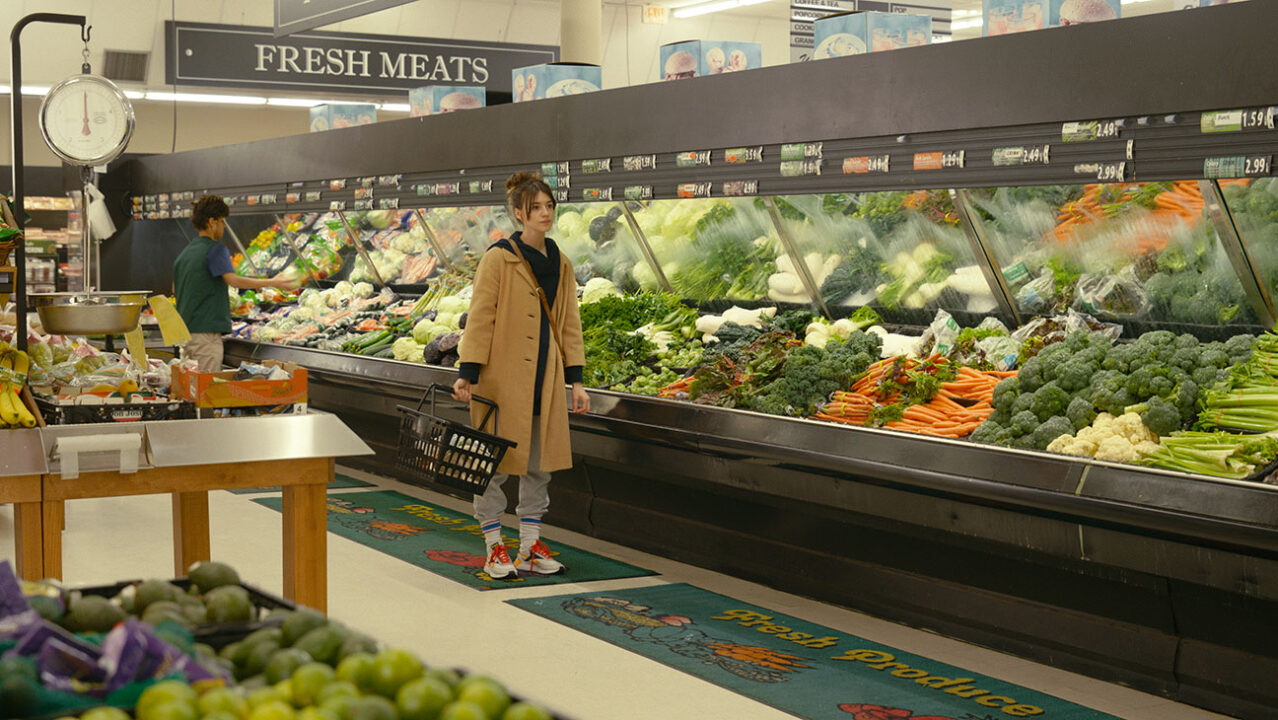
It's easy to see how he was able to win Noa over so quickly with his sultry stare and quick comfortability. Daisy Edgar-Jones holds it down as our vulnerable turned badass heroine. So much of her performance is dependent on her body language, and if awards were given for best non-verbal performance, Edgar-Jones would take the gold.
Director Mimi Cave built up quite the reputation as someone to watch in the music video space, working with artists like Sleigh Bells and Sylvan Esso. Using her experience of marrying sound to picture, Cave relies heavily on chart-toppers and deep cuts to help guide the players throughout the film, the music almost acting like a secondary character. Furthering the film's ominous disposition is the sweepingly tense score by composer Alex Somers.
While it didn't necessarily blow me away, FRESH is a satiating watch if you're looking to whet your horror palate.
114 minutes.
Matthew Gray Gubler is a Pagan Priest With a Preppy Past in 'King Knight'
Where to watch: ‘King Knight’ is available to watch now on Digital and VOD, and playing at Cinelounge Sunset and Alamo Drafthouse on Friday, February 18th.
Matthew Gray Gubler has such an insanely large and dedicated fanbase that the mere mention of his name is among the best PR a film of his can receive. So, let me just say: Matthew Gray Gubler. His new movie, King Knight, is a farcical dark comedy in which Gubler plays Thorn, the high priest of a small pagan cult alongside his partner and high priestess Willow (Angela Sarafyan). Under their leadership, Thorn and Willow advise their new-age witch community on everything from relationship issues to life advice. They put out metaphorical fires with ease but, unbeknownst to them, there's about to be a disruption in the coven.
However, Thorn is hiding a secret: one so big that it stands to blow up his pagan paradise and jeopardize everything he loves. Despite trying to hide all evidence, Willow uncovers Thorn's deepest, darkest secret in an email from his former high school classmate: an invitation to attend his 20-year reunion, addressed to the class President, Prom King, and "Most Likely to Succeed" honor student, Thornton.
Screaming in terror, Willow is horrified to learn that Thorn actually comes from a preppy, well-adjusted background and doesn't have a dark, emo past as he led her to believe. "You might as well be a Chad!" she yells at him, as he sheepishly avoids eye contact. It's the film's funniest scene and perfectly describes the tone of the film. Thorn's further confession to playing lacrosse sends Willow into an uncontrollable frenzy. "I fucking hate you!" she screams, as we laugh.
Thorn is forced to comfort his squeaky clean past once and for all. He agrees to attend his high school reunion, using the opportunity to go on a solo vision quest and try to discover who he really is. Impressive mixed-media animation depicts Thorn's journey of self-discovery as he wanders throughout the desert drunk on ayahuasca and regret.
The humor of King Knight comes from the characters taking themselves so seriously despite its obviously silly premise. It's shot like a horror film with a techno dubstep score by Steve Damstra, and a supporting cast that reads like an underground comedy set: Andy Milonakis, Kate Comer, Johnny Pemberton, and Nelson Franklin are just some of the names that make up the new wave witch cult. Matthew Gray Gubler is charming as always, and Angela Sarafyan's levelheadedness offers a nice balance to his zaniness.
King Knight is a goofy eighty-one minutes of fun, well worth the investment if you're looking for a humble indie film to make you smile–or to just gush over Matthew Gray Gubler.
Distributed by XYZ Films. 81 minutes.
UFO Cult Bizarreness Abounds in 'Cosmic Dawn,' Based on a True Story
If you're in the mood for some low-stakes, campy cult bizarreness, Cosmic Dawn may pique your interest. Written and directed by Jefferson Moneo, this isn't your average sci-fi story that's rooted in imagination and make-believe; this is based on Moneo's own lived experience. He states, "Cosmic Dawn was shaped by an extraterrestrial encounter I had as a child. Like Aurora in the film, no one believed my story." Now we're talking.
Starring Camille Rowe as Aurora, the film tackles an ambitious premise with obvious production quality limitations, but still makes for an enjoyable watch. Aurora was never the same after witnessing the disappearance of her mother by a UFO as a child. The unexplainable paranormal event wreaked havoc on her life. Everyone believed she was crazy, despite knowing that what she saw was true. It isn't until she meets Natalie (Emmanuelle Chriqui) at a local bookstore that she finally feels seen. Natalie reveals herself to be a member of The Cosmic Dawn, a UFO worshipping cult that all share a common paranormal experience (and a karaoke obsession).
Aurora is skeptical at first but eventually falls in with the cult and its high-powered feminine leader Elyse (Antonia Zegers). Elyse is a visionary, revered by her members in the same way Peoples Temple leader Jim Jones or Indian guru Bhagwan Shree Rajneesh were admired. It's not until Aurora is invited to a remote island compound for The Cosmic Dawn retreat that she begins to question Elyse's motives, sanity, and self.
Cosmic Dawn plays in a nonlinear timeline, jumping very liberally back and forth four years into the future throughout the film. A bit distracting at times, the purpose is to show that Aurora's integration into the cult happened four years in the past. Even though she has since moved on and distanced herself from The Cosmic Dawn, Aurora soon discovers that she hasn't really escaped Elyse's control.
While Jefferson Moneo never explicitly says what he saw as a child that inspired this film, we're led to believe it was some truly wacky stuff. Camille Rowe embodies a traumatized child turned adult with undeniable magnetism. Even when dressed the same as the other cult members in full-length jumpsuits, Rowe always stands out. As a whole, Cosmic Dawn has a similar The Scary of Sixty-First vibe that feels intentionally trippy and off-center. That's not a big surprise given that the score is composed by Alan Howarth and features music by MGMT.
One of the big takeaways after watching Cosmic Dawn is the film's message of discovery and acceptance. Acceptance is a journey that looks different for everyone but staying true to yourself and your beliefs will keep you on the right path. Just be aware that a belief in UFOs may lead you on a direct path to the mothership.
Distributed by Cranked up. 98 mins. Opening in theaters and VOD on Friday, February 11, 2022.

